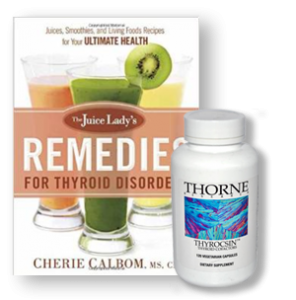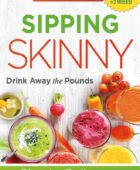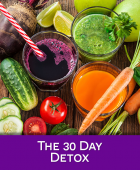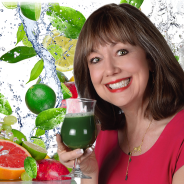Are They Really Superfoods?
What’s Super About Superfoods?
Have you ever wondered why certain foods are called “superfoods” and if they really are better than other foods? Research shows that some foods truly are super healthy and stand out above the rest when it comes to health and healing. The Macmillan Dictionary defines “superfood” as “a food that is considered to be very good for your health and that may even help some medical conditions.”
Here are two top contenders:
Watercress
Watercress, like beet juice, has been shown in studies to lower blood pressure. It contains similar high levels of the same nutrients found in beets. Beet juice was shown to lower blood pressure in three hours when people drank an 8.5-ounce glass of beet juice. With the watercress study, participants lowered their diastolic blood pressure by an average of 3.7 mm Hg in just three days. In other words, rats who ate watercress had lower blood pressure levels than the rats using medication to treat high blood pressure.
Watercress is also rich in a specific glucosinolate known as gluconasturtiin, which converts to PEITC in the human body. In fact, it contains more PEITC than any other cruciferous veggie. This is significant for fighting cancer. A 2015 study found PEITC has the ability to stop new blood vessels from forming to feed tumors, so tumours can’t access blood supply and multiply.
Read MoreHypothyroid and Weight Loss
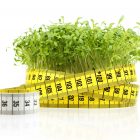
Make it Watercress Juice!
An ancient green, watercress is said to have been a staple in the diet of Roman soldiers, which they used for energy and brain power. It is a part of the cruciferous vegetable family along with kale, broccoli, cauliflower, and Brussels sprouts.
Hippocrates, the father of medicine, used watercress to treat his patients. It was widely available until the 19th century and watercress sandwiches were a staple of the working class in England.
Read MoreThyroid Detox Soup

Thyroid Detox Soup
April “souped off” a size and healed her thyroid. She participated in my July Watercress Soup Diet where she lost 7 lb. and a whole size. This is the theme of the cover story for Woman’s World magazine this week. April was diagnosed with borderline hypothyroid. She believes the watercress soup diet program helped her thyroid. She gained energy and was able to work out like she hadn’t been able to before. This diet helped her when nothing else had helped her lose weight.
Read More
Souping is the New Juicing Hits the News Stands!

Watercress Soup Diet
Summer vacations are over. The barbecues, parties, vacations, reunions, and weddings with all the fattening food are passed. Did you gain a few pounds? Well, it’s time to take it off.
I have a tip for you. I’ve proven that the Watercress Soup Diet works! This diet is in my book Souping is the New Juicing. (And guess what! It’s now available!) If you didn’t see it earlier when I published the results of my study in July, here they are again.
Read MoreHeal Your Thyroid
Heal Your Thyroid
I’ve never had low thyroid problems until just recently when my adrenals became very stressed. The thyroid and adrenals are closely associated so my thyroid has shown a little distress. I’m working on both. And it seems that I’m not alone. According to the United States National Library of Medicine and National Institutes of Health, an estimated 27 million Americans suffer from thyroid disease and 13 million people go undiagnosed. Besides stress, the following are the most common causes of thyroid problems:
- Deficiencies of iodine and selenium.
- Food sensitivities to gluten and A1 Casein (dairy) allergy
- Toxins—especially heavy metals and radiation exposure
- Hormone imbalances—cortisol too high from stress, too many carbs, not enough fat in the diet
Watercress Juice for Hypothyroid and Weight Loss
Heal Thyroid and Lose Weight – Watercress Juice Does Double Duty!
An ancient green, watercress is said to have been a staple in the diet of Roman soldiers, which they used for energy and brain power. It is a part of the cruciferous vegetable family along with kale, broccoli, cauliflower, and Brussels sprouts.
Hippocrates, the father of medicine, used watercress to treat his patients. It was widely available until the 19th century and watercress sandwiches were a staple of the working class in England.
Read MoreJuicing for Thyroid and Hashimoto’s
Juicing for Thyroid and Hashimoto’s
Could poor thyroid function be making you sick, tired, or overweight? Your thyroid is a key gland that’s tied to every other system in your body. When it’s out of balance, you’re out of balance. It could be the reason you have trouble losing weight or keeping the weight off.
A blood test may never indicate that you have a problem with this gland. Thyroid tests are designed to identify hypothyroid, not a sub-optimal—just-a-bit-below-par thyroid function. If you have a number of symptoms of low thyroid, chances are that you could benefit by working on your thyroid health by making lifestyle changes.
Symptoms of Low Thyroid Function
Read MoreCould You Have Low Thyroid?
Could You Have Low Thyroid?
Have you been wondering why you haven’t felt your best? Your thyroid function may be too high, too low, or shades of in between. It’s the “in-between” I want to help with because less than optimal function doesn’t get addressed with standard thyroid tests. If your thyroid function is suboptimal, you may be fatigued, have trouble losing weight, or challenges sleeping. You might have stinging in your eyes or lines on your finger tips. Low thyroid function is a common condition, as evidenced by the fact that Synthroid (synthetic thyroid hormone) is the fourth most prescribed drug in America. But many people struggle with less than optimal thyroid health never knowing what to do to get better.
T4 is the primary hormone produced by the thyroid gland but it is not the most active. T4 is converted to T3. T3 is 3 to 8 times more potent than T4. But T4 is the hormone measured. What matters most, however, is how well your thyroid hormones do their job, not just how much thyroid hormone is measured in a blood test.
Stress hormones, nutrient deficiencies such as iodine and selenium deficiency, mercury, lead, and cadmium toxicity along with certain medications can impair the enzymatic conversion of T4 to T3. Other aspects of thyroid hormone metabolism can be impaired and ultimately result in less than optimal thyroid function. Inadequate thyroid stimulating hormones from the brain and pituitary gland due to stress, very low calorie diets, inflammation, and environmental toxins can promote low thyroid function. Other dysfunctions include impaired production of hormones due to iodine deficiency, toxins that affect the thyroid function (chlorine, bromine, and fluoride), certain medications, excessive intake of harmful foods especially sugar, and autoimmune reactions, which can be initiated by food intolerances and other environmental factors.
You can improve your thyroid function and bring it into more optimal function. Take the Thyroid Quiz to get a better idea about your thyroid health.
Good News! Thyrocsin is Back In Stock!
For my nutritional program to heal the thyroid, get a copy of my latest book The Juice Lady’s Remedies for Thyroid Disorder on sale now for $9.00.
Thyrocsin™ is an excellent thyroid supplement that I highly recommend. $27.35
Special offer Thyroid Renew—the book and the supplement $35.95
Special supplement offer Thyrocsin™ 3-pack $59.95.
You may want to couple this with my adrenal support Vitality Renew. (Adrenal and thyroid are closely tied together.)
Today’s Recipe
 Thyroid Tonic I
Thyroid Tonic I
Radishes are a traditional tonic for the thyroid. In the old Soviet Union, black and red radishes were accepted and recommended by some doctors as a medical treatment for hypthyroidism. Radishes contain a sulphur component called raphanin that keeps the production of thyroxine and calcitonin (a peptide hormone) in normal balance.
- 5 carrots, scrubbed well, green tops removed, ends trimmed
- ½ medium lemon, peeled
- 5-6 radishes, with green tops
Cut produce to fit your juicer’s feed tube. Juice ingredients and stir. Pour into a glass and drink as soon as possible.
Serves 1
From The Juice Lady’s Remedies for Thyroid Disorders
Read MoreAdrenal-Thyroid Connection and Energy
Adrenal-Thyroid Connection and Energy
Are you feeling tired? Run Down? In need of energy to make it through the demands of the holiday season? When your adrenals are constantly stressed, this sets off an autoimmune, inflammatory response in your entire body. The adrenal-hypothalamus-pituitary feedback loop regulates the secretion of cortisol. All of your organs and your immune system are impacted negatively by the resulting constant assault of cortisol. Low adrenal function can actually cause someone’s thyroid problem to be much worse than it would be otherwise. This leads to fatigue that is cured by sleep.
When people with both low thyroid and low adrenal function are put on thyroid hormone alone, they sometimes feel worse. If you have low adrenal levels and take thyroid hormone by itself, the increased metabolism may accelerate the low adrenal problem. Also, interactions between the hormones are sometimes as important as the direct action of the hormones themselves. Some adrenal hormones assist in the conversion of T-4 to T-3, and may assist in the final effect of T-3 on the tissues. Some scientists believe that even the entrance of thyroid hormone into the cells is under the influence of adrenal hormones. If your adrenal level is low enough, you could benefit by taking both adrenal and thyroid support together.
I recommend Vitality Renew (for adrenals) and Thyrocsin (for thyroid). Also, my books The Juice Lady’s Remedies for Stress and Adrenal Fatigue and The Juice Lady’s Remedies for Thyroid Disorders could be very helpful.
Read MoreHeal Your Thyroid Gland
Heal Your Thyroid Gland
The thyroid gland needs specific vitamins and minerals to function well. Research shows us that there are several key nutrients that are highly valuable for the thyroid gland.
Iodine is the most important trace element found in thyroid functioning. Without iodine, our thyroid does not have the basic building blocks it needs to make the necessary hormones to support all of the tissues in the body. Thyroxine (T4) and Triiodothyronine (T3) are the most essential, active, iodine-containing hormones in our body. In 2012, a CDC report showed that women of childbearing years in the United States, ages 20-39, had the lowest iodine levels of any other age group. This is something we can easily improve by eating more iodine-rich foods such as seaweed and sea vegetables. (See the Veggie Seaweed Wrap Recipe below,)
Selenium is vital to our thyroid in several ways. Selenium-containing enzymes protect the thyroid gland when we are under stress, working to flush out oxidative and chemical stress, and even social stress – which can cause reactions in our body. Selenium-based proteins help regulate hormone synthesis, converting T4 into the more accessible T3. These proteins and enzymes help regulate metabolism and also help maintain the right amount of thyroid hormones in the tissues and blood, as well as organs such as the liver, kidneys, and even the brain. Selenium also helps regulate and recycle our iodine stores.
Zinc, iron, and copper are trace metals that are vital to thyroid function. Low levels of zinc can cause T4, T3, and the thyroid stimulating hormone (TSH) to drop too low. Research shows that both hyperthyroidism (overactive thyroid) and hypothyroidism (under active thyroid), can sometimes create a zinc deficiency leading to lower thyroid hormones. Decreased levels of iron can result in decreased thyroid function as well. When combined with an iodine deficiency, iron must be replaced to repair the thyroid imbalance. Copper is needed to help produce TSH, and maintain T4 production. T4 helps cholesterol regulation, and some research even indicates copper deficiency may contribute to higher cholesterol levels and heart issues for people with hypothyroidism.
Read More
Thyroid and Osteopenia/Osteoporosis
Thyroid and Osteopenia/Osteoporosis
Osteoporosis, osteopenia, or bone loss can be caused by thyroid levels (T3 and T4) that are too high or too low. High thyroid levels up-regulate the genes involved with bone resorption or bone loss. But thyroid hormone also up-regulates the genes involved with bone formation and bone generation. If thyroid levels are too low, bone generation is impaired. Healthy bone metabolism requires thyroid levels that are neither too high nor low.
Research has shown that thyroid stimulating hormone (TSH) has a dual function: Osteoblasts actually have TSH receptors that are constantly “listening” for signals from TSH. T3 sets the bone building tempo. It needs to be consistent and regular to produce harmonic results, and it involves many key players. For instance, osteoblasts actually play an important role in mediating the thyroid hormone stimulation of osteoclastic resorption, according to a study published in the European Journal of Endocrinology. This means that osteoblasts act as mediators between thyroid hormone and osteoclasts (the cells that tear down bone).
Without sufficient T3, normal bone remodeling is disrupted, and bone resorption happens at a more rapid rate than bone building. The result is decreased bone density and osteopenia or osteoporosis.
Other Related Conditions Associated with Thyroid Disorder
- Adrenal Fatigue (see The Juice Lady’s Remedies for Stress and Adrenal Fatigue)
- Anemia
- Hyponatremia (low blood sodium)
- Lack of coordination
- Clumsiness
- Tendency to fall
- Dizziness
- Fainting episodes
- Vertigo
- Tremor
- Growth disturbances in children
- Chronic allergies
- Chemical sensitivities
- Restless Leg Syndrome
- Rhabdomyolysis (destruction of skeletal muscle)
- Scoliosis
- Hernia
For the sake of your bones, it is very important to feed your thyroid and support the health of this gland. Nutrients that empower the thyroid are very important to include when you are under stress as well as when you have symptoms of low thyroid. (Take the Thyroid Quiz) Iodine is necessary for formation of T4, while L-tyrosine is a necessary component of both T4 and T3 formation. Animal studies indicate the botanical ashwagandha can increase T4 concentrations. Several nutrients are also necessary for conversion of T4 to T3, including the minerals selenium, zinc, and copper. An insufficiency of vitamin B 12 appears to interfere with the activity of thyroid hormones. Conversion of T4 to T3 can be inhibited by heavy metal toxicity and lipid peroxidation; the antioxidant vitamins C and E can counterbalance this inhibition.
For more information and remedies for thyroid health, get my book The Juice Lady’s Remedies for Thyroid Disorder.
On special now for just $9.00.
Thyrocsin™
(contains all the nutrients noted above) $27.35
Today’s special offer Thyroid Book + Supplement Special offer Thyroid Renew-
the book and the supplement – $35.95
Read More
Thyroid Tune-Up
Thyroid Tune-Up
Your thyroid function may be too high, too low, or fifty shades of in between. It’s the “in-between” I want to help because less than optimal doesn’t get addressed with standard thyroid tests. If your thyroid function is suboptimal, you may be fatigued and have trouble losing weight or sleeping. You might have stinging in your eyes or lines on your finger tips. Low thyroid function is a common condition, as evidenced by the fact that Synthroid (synthetic thyroid hormone) is the fourth most prescribed drug in America. But many people struggle with less than optimal health never knowing what to do to get better.
T4 is the primary hormone produced by the thyroid gland but it is not the most active. T4 is converted to T3. T3 is 3 to 8 times more potent than T4. But T4 is the hormone measured. What matters most, however, is how well the thyroid hormones do their job, not just how much hormone is measured in a blood test.
Stress hormones, nutrient deficiencies such as iodine and selenium, mercury, lead, and cadmium toxicity along with certain medications can impair the enzymatic conversion of T4 to T3. Other aspects of thyroid hormone metabolism can be impaired and ultimately result in less than optimal thyroid function. Inadequate thyroid stimulatory hormones from the brain and pituitary gland due to stress, very low calorie diets, inflammation, and environmental toxins can promote low thyroid function. Other dysfunctions include impaired production of hormones due to iodine deficiency, toxins that affect the thyroid (chlorine, bromine, and fluoride), certain medications, excessive intake of certain foods especially sugar, and autoimmune reactions, which can be initiated by food intolerances and other environmental factors.
You can improve your thyroid function and bring it into more optimal function. Take the Thyroid Quiz to get a better idea about your thyroid health.
For my nutritional program to heal the thyroid, get a copy of my latest book The Juice Lady’s Remedies for Thyroid Disorder on sale now for $9.00.
Thyrocsin™ for $27.35 is an excellent thyroid supplement that I highly recommend.
Special offer Thyroid Renew—the book and the supplement $35.95
Special supplement offer Thyrocsin™ 3-pack $59.95.
You may want to couple this with my adrenal support Vitality Renew.
Read More


